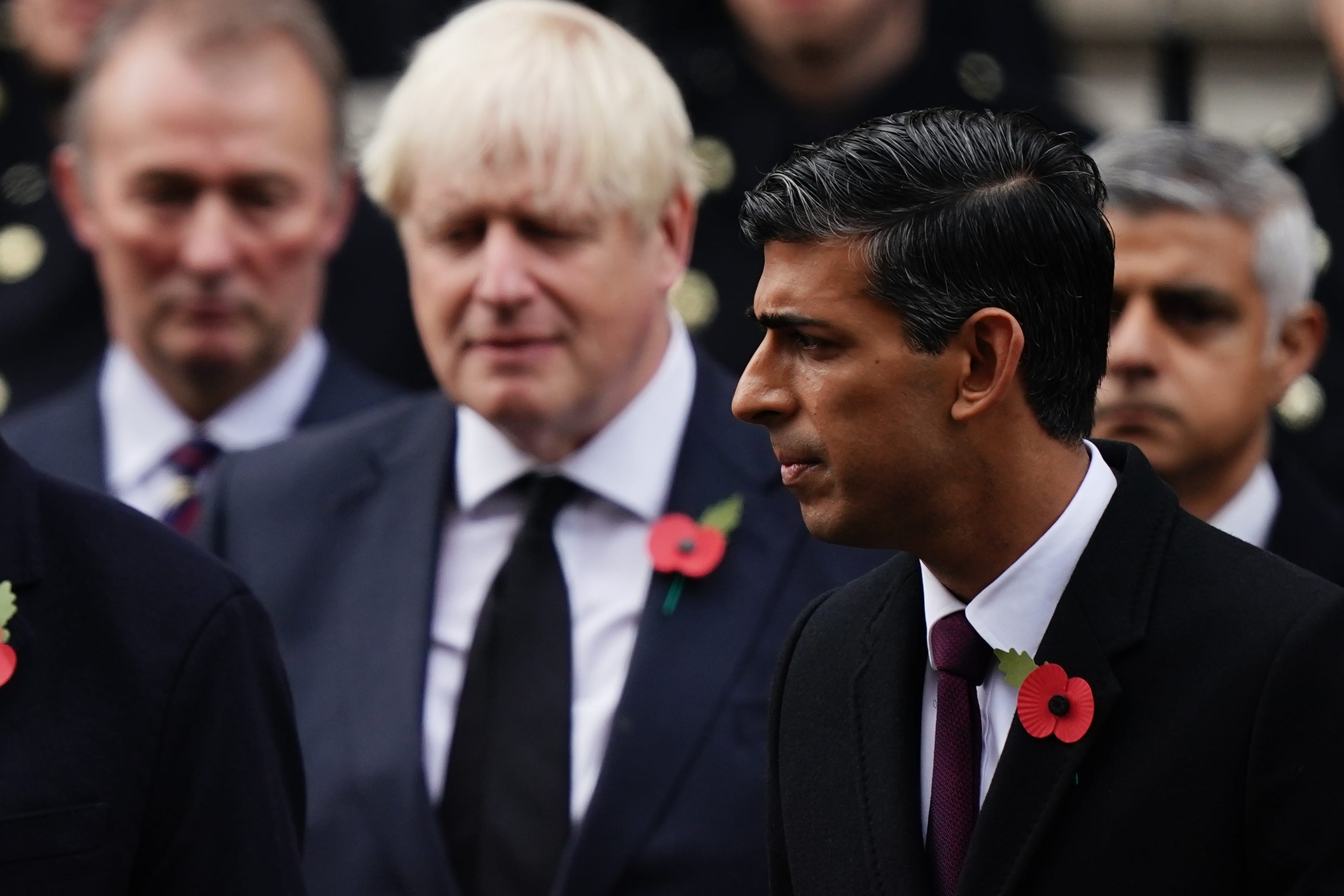Ban Boris and beef up the ministerial code: How Rishi Sunak can turn disaster to triumph
Sunak is not a natural street fighter and has sometimes been too nice for his own good. He can’t afford to be now and must go further, writes Andrew Grice


Rishi Sunak tried to do a dirty deal with Boris Johnson. In return for Downing Street approving his resignation honours list, Johnson wouldn't make more trouble for Sunak and would campaign for the Conservatives in the red wall seats in the north and Midlands that could decide the next general election.
The peace agreement ended in civil war after Sunak refused to overrule the House of Lords appointments commission (Holac) by handing peerages to four members of Johnson's fan club. So the prime minister now knows it’s not possible to do make “a pact with the devil,” which is how some Tory MPs described backing Johnson for the party leadership in 2019.
The past week has been disastrous for Sunak, as Johnson and Tory divisions again dominate the headlines. There are many more damaging headlines to come.
Yet there is a way for Sunak to profit in adversity. He has rightly begun to hit back at Johnson by telling the honours story straight, rather than pull his punches.
Sunak is not a natural street fighter and has sometimes been too nice for his own good. He can’t afford to be now and must go further. He should come out strongly in support of the privileges committee's scathing verdict that Johnson lied to parliament on Partygate, expected tomorrow, and ensure the Commons formally approves the findings, rather than merely noting it to limit a public rebellion by Johnson allies.
Sunak should announce that he will prevent Johnson from being a Tory candidate before or at the next general election for bringing the party into disrepute. The evidence will be there in the privileges committee report. (Although the Tories can’t admit it, disowning a predecessor has worked well for Keir Starmer. Being “not Corbyn” won’t win him next year’s election but it will help.)
Sunak should grab the opportunity given to him by Johnson’s antics to deliver his promise of "integrity, professionalism and accountability at every level", and underline he is a very different animal to the former PM. For starters, Sunak should announce that he will not have a resignation honours list when he departs from Downing Street and scrap the archaic system dating back to 1895.
He could give Holac greater powers to ensure the right people become lawmakers in the second chamber; for example, there should be fewer party donors. He should reduce the size of the 777-member Lords, one of the largest legislative bodies in the world. Peers would back a cut to 600.
Sunak should beef up the ministerial code to learn lessons from the Johnson era. He should reinsert the seven principles in public life – selflessness, integrity, objectivity, accountability, openness, honesty and leadership – to the code’s foreword to put them in neon lighting.
His ethics adviser should have the power to investigate ministers, including the PM, without the PM’s approval and publish their findings when they want.
Other unfinished business on standards Johnson left on the Whitehall shelf includes lobbying after the Greensill scandal involving David Cameron and curbs on MPs’ outside jobs. Tory backbenchers won’t like the latter but Sunak would get brownie points from voters.
Sunak should underline the changes on policy too, billing his pre-election tax cuts as a reward for tough decisions Johnson would never have taken.
Despite the Tories’ woes, Labour privately fears Sunak could yet persuade voters he offers a fresh start; Johnson might unwittingly help him do so. Labour has painful memories of how John Major convinced the public it had already had a change of government after he succeeded Margaret Thatcher, so there was no need to switch to Labour at the 1992 election. One senior Labour figure told me: “We need to pin the Tories’ record in the past 13 years around Sunak’s neck. We cannot allow him to be the change candidate.”
Most Tory MPs would back getting tough with Johnson as the Tories’ instinct for unity kicks in with the election looming. So would most voters. According to Savanta today, Johnson’s favourability rating amongst the public (minus 23 points) and Tory voters (plus 15) are both 12 points lower than Sunak’s figures.
After making trouble for a while, Johnson will find he has nowhere else to go. He should be wary of the embrace offered by Nigel Farage and joining him in a new right-wing populist party, which would end in failure. The devil would be wise to avoid a pact with another devil.
True, Farage is very good at spooking the Tories. But what does Johnson really have in common with him other than Brexit? The former PM’s remaining friends are much more right wing than he is – on immigration, net zero, tax and spending and infrastructure projects.
Here's a prediction: Johnson will make as much mischief as possible for Sunak and his memoirs will be explosive. But he will come to realise his only glimmer of hope of a return to frontline politics is via the Tories. So, despite the current feud with Sunak, when the election comes, Johnson will campaign for the party – and a Sunak victory – in the red wall after all. Only, of course, because he will judge it in his own interests.






Join our commenting forum
Join thought-provoking conversations, follow other Independent readers and see their replies
0Comments